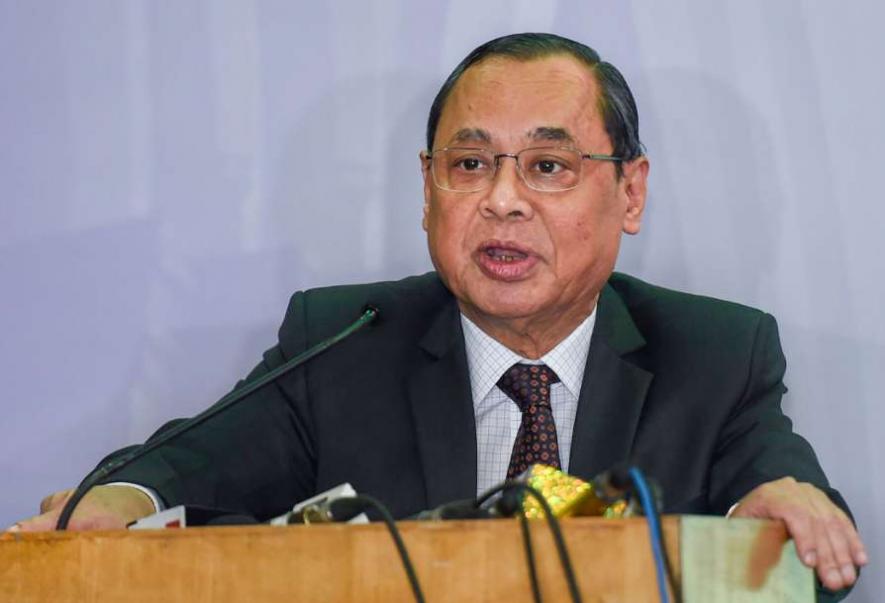Law Students to SC Judges: Principles Of Justice Violated In Sexual Harassment Case Against CJI

Image Courtesy: Mathrubhumi English
New Delhi: Students from Delhi University’s Law Faculty have written an open letter to the judges of the Supreme Court, condemning the “blatant violation” of principles of administrative law and natural justice in the case of sexual harassment allegations against the Chief Justice of India (CJI).
The students point out that two basic principles of natural justice were “sidestepped by the Apex court” in the proceedings regarding a former employee’s accusations against CJI, Ranjan Gogoi.
“Nemo judex in propria causa” — translated from Latin into English as “no one should be a judge in his own case” — is the first principle that was made a mockery of when Gogoi appointed himself as one of the judges hearing the case in which he was an accused.
As the letter notes, it is “the first legal maxim we as law students learn and it was unfortunate to see it as the first violation on April 20th hearing where the Hon’ble Chief Justice of India constituted the bench comprising two other judges and himself and took the matter suo moto and heard the case.”
“The Honourable CJI, who is both the judge and the accused in this case, led to a violation of second principle, “audi alteram partem”,” continues the letter.
Also Read: CJI Gogoi Sexual Harassment Case: Some Critical Questions for the Apex Court
“Distressingly, this pattern continued through the weeks by a series of injustices to the complainant where the due process of fair enquiry was not undertaken.”
Expressing the law student community’s shock and distress over these happenings, the letter, signed by 133 students enrolled at the Faculty of Law, goes on:
“The committee which enquired into the complaint, has refused the complainant the right to know about the procedure of enquiry, the very nature of the enquiry has been left ambiguous, it has refused the complainant any legal representation especially when the balance of power is skewed against her; it refused to allow any video or audio recording of the procedure, especially when the complainant is undergoing psychosomatic anxiety stress and hearing impairment; she was refused access to recorded statements, to the final report of the enquiry; she was orally asked not to speak with the media or even with her lawyer.”
The students said these “unfair procedures” had eroded their trust in the judicial system and the Supreme Court.
Also see: Sexual Harassment: Is CJI Ranjan Gogoi Above Law?
“These unfair procedures have increasingly shaken our faith in Apex court's ability to mete out justice in accordance with procedure established by law. We hope the Supreme Court is not remembered through history for denying its former employee gender justice.”
The students have demanded a “fair and independent” enquiry into the complaint as per the Prevention of Sexual Harassment at Workplace Act, 2013 and the Vishakha guidelines.
“We all believe that justice must not only be done but also seen to be done, and the entire country has intently fixed its eyes on the Apex court this time.”
Get the latest reports & analysis with people's perspective on Protests, movements & deep analytical videos, discussions of the current affairs in your Telegram app. Subscribe to NewsClick's Telegram channel & get Real-Time updates on stories, as they get published on our website.
























